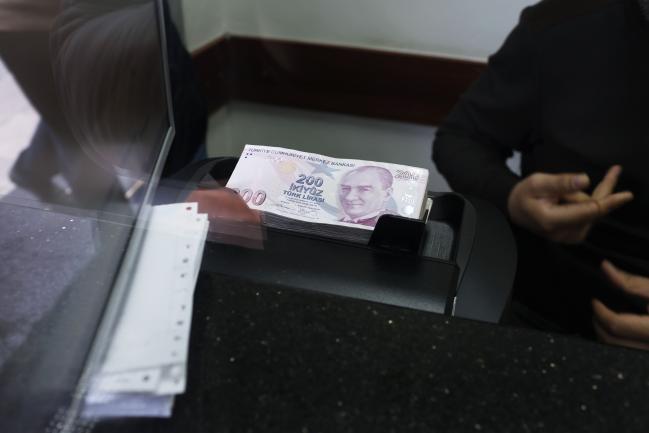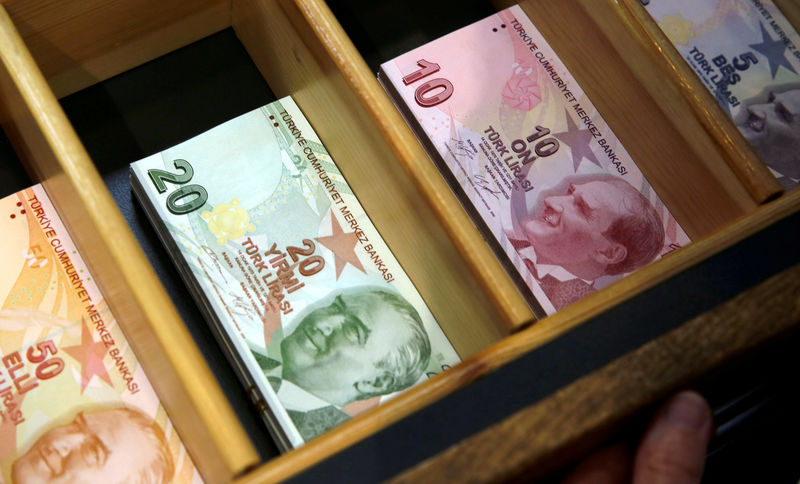(Bloomberg) --
Turkey is asking banks to use futures contracts to hedge their growing foreign-currency liabilities to help ease some of the pressure that a surge in dollar demand from local businesses is putting on the lira exchange rate.
Authorities advised lenders last week that instead of buying hard currency in the spot market, they should purchase futures agreements to balance any foreign-currency obligations toward their clients, according to people with knowledge of the mater, who asked not to be identified because the matter isn’t public.
The call comes as state-owned banks approach the legal limit on how much currency risk they can hold, a result of their efforts to support the lira by selling dollars on the spot market. The new measure is also part of policy makers’ push to increase the nation’s currency reserves, the people said.
Typically, when a Turkish lender sells a foreign-currency forward contract to a corporate client, they hedge this position by buying the dollars in the spot market. Shifting some of this demand to the futures market would help support the lira and require the central bank to sell less of its reserves.
The central bank and Turkey’s banking regulator declined to comment.
Cash Settled
One major benefit of future contracts is that they’re cash settled -- which means that banks don’t need to have the dollars to hand. Still, given the lack of liquidity in the futures market, any meaningful shift -- at least initially -- would probably see the central bank take on a large role as a counterparty.
The level of central bank reserves has been a concern for some Turkey analysts since last year, when it began borrowing foreign currency from commercial lenders through swap agreements. The central bank’s foreign currency holdings have dropped to $49.6 billion as of July 10 from $81.2 billion at the end of last year.
Over the weekend, the monetary authority raised the amount of foreign exchange lenders must hold at its coffers, a move that’s expected to increase the nation’s reserves by around $9.2 billion.
(Updates with foreign currency reserves in penultimate paragraph.)
©2020 Bloomberg L.P.

